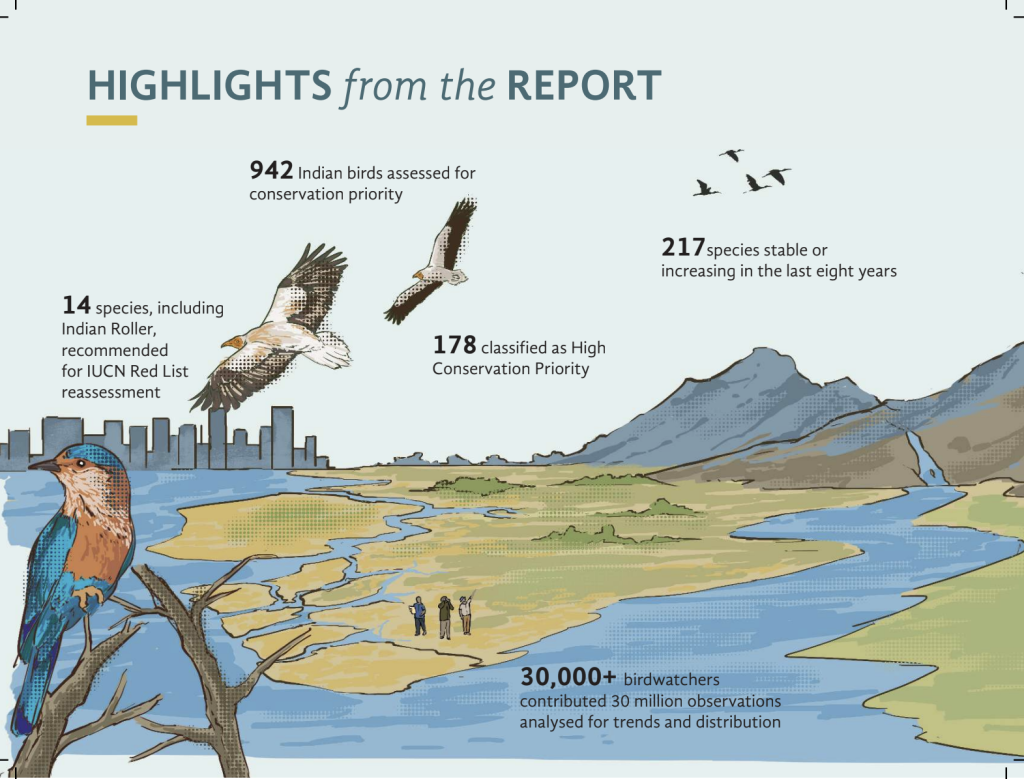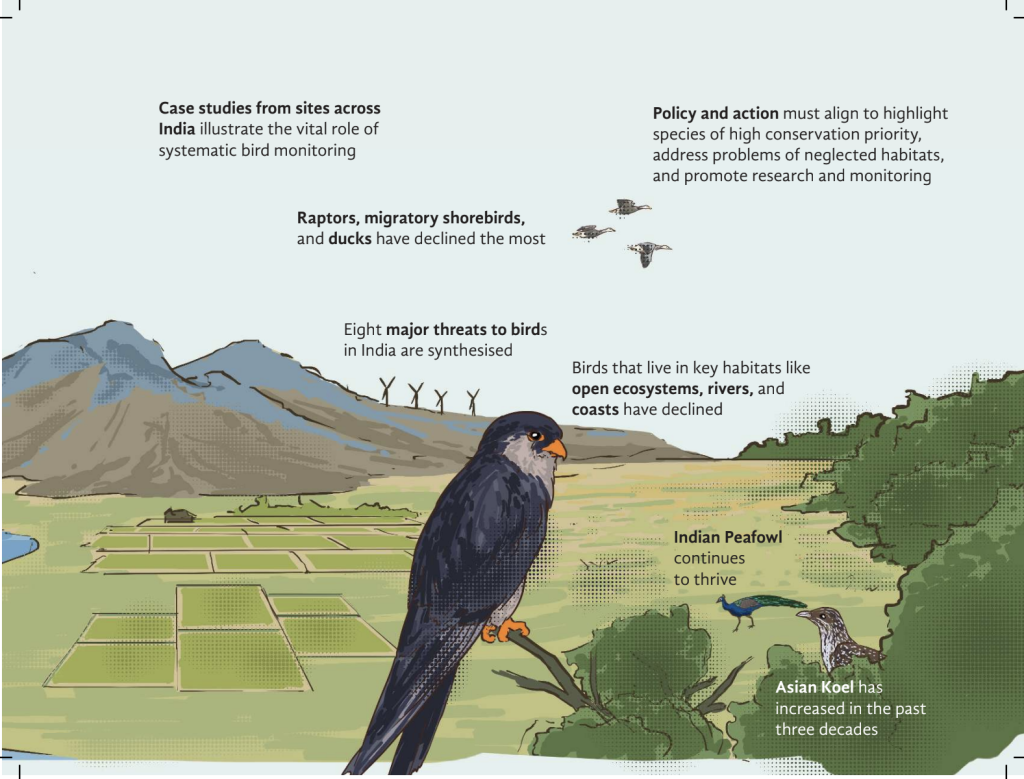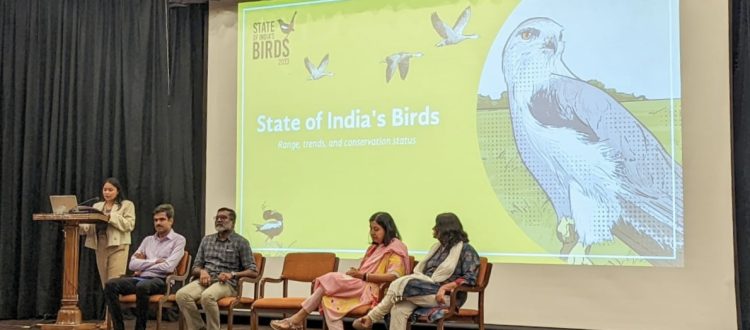WTI partners in the launch of the State of India’s Birds 2023 report
New Delhi, 25th August 2023: The second edition of the State of India’s Birds (SoIB) report was launched on 25 August 2023 at the India International Centre in New Delhi. SoIB 2023 is based on 30+ million field observations from over 30,000 birdwatchers and researchers across India.
Wildlife Trust of India is proud to be one of the 13 partner organisations that have contributed extensively to the report. 50 bird experts, including our founder and ED, Vivek Menon have worked on analysing and synthesising the best available information to enhance bird conservation efforts in the country.
SoIB 2023 is an assessment of long-term and current trends, distribution range size and overall conservation status of 942 bird species. It also carries case studies of systematic monitoring efforts, as well as reviews of key threats to birds. It updates and builds upon the first SoIB report, which was published in 2020.

Highlights from the second edition of the SoIB 2023 report | Image taken from SoIB 2023 Report
The International Union for Conservation of Nature (IUCN) Red List shows that 49% of bird species worldwide are declining in population, compared with only 6% increasing. In India, generalist species like feral Rock Pigeon, Ashy Prinia, Asian Koel and Indian Peafowl are doing very well.
Other common species like the Baya Weaver and Pied Bushchat are relatively stable. But the larger picture is grim: 60% of species show long-term declines (out of 348 species that could be assessed for Long-term Trend), and 40% of species are declining currently (out of 359 species assessed for Current Annual Trend). The declines are not spread uniformly across different types of species; examining differences across groups of species that share common characteristics reveals informative patterns.
Habitat specialists—particularly birds of grasslands and other open habitats, wetlands, and woodlands—are declining rapidly. In terms of diet, carnivores, insectivores, and granivores are declining more rapidly than omnivores or fruit- and nectar-eaters. Separately, migratory species appear to be under greater threat than non-migrants. And species endemic to the Western Ghats–Sri Lanka region are faring worse than others. Certain groups of birds are faring particularly poorly, including open habitat species like bustards and coursers, riverine sandbar-nesting birds like skimmers and some terns, coastal shorebirds, open-country raptors, and a number of ducks.

The report is based on 30+ million field observations from over 30,000 birdwatchers and researchers across India | Image taken from SoIB 2023 Report
The finding that a large number of common species are in trouble is a cause for concern. Equally worrying is that a considerable number of species lack the data to be assessed. Insufficiency of data meant that of the 942 species covered in this report, Long-term Trend could not be calculated for 44% and Current Annual Trend could not be estimated for 31% of the species. The report summarises implications that flow from the findings and makes broad recommendations for bird conservation in the country.
During the launch of the SoIB 2023 Report, Vivek Menon, Founder and Executive Director of the Wildlife Trust of India conveyed, “Conserving birds is both a key part of nature conservation and also important for the human soul. We at Wildlife Trust of India work on bird conservation issues and are delighted to partner in this state-of-the-art report. This report tells us what we must do so that our grandchildren can enjoy birds, as we do.”









